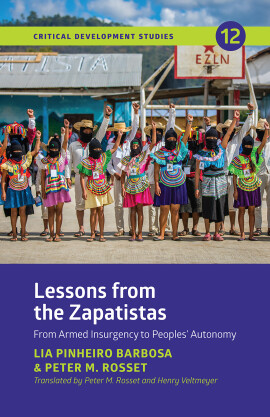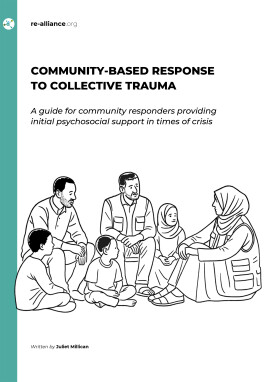
Youth and Positive Uncertainty
Negotiating life pathways in post-conflict and fragile environments
Young people do not necessarily view uncertainty in their lives as negative, especially those most-marginalised youth who see their ‘certainty’ as poverty, unemployment and environmental fragility. Youth perspectives presented in this book show how some of the most-marginalised youth seek ‘positive uncertainty’ by escape from traditional practices and social bonds in families and communities, through migration or seeking innovative and alternative ways to meet peer, adult and societal expectations.
The authors explore how youth see uncertainty in their lives as they grow up in different parts of the world, and how they respond and take action in terms of `positive uncertainty’. When young people don’t know what is going to happen in their lives and contexts, they often embrace it as positive and use their creativity to take up new opportunities and futures. Many of the poorest or most-marginalised young women and men often need to move away from home and migrate, but still want to meet the expectations of others, stay connected and be accepted back into their families and communities on their return.
The chapters describe learning from the creativity of young men and women in Ethiopia and Nepal, and youth who are genderfluid in Nepal, regarding uncertainty and discusses the implications for policy and practice, and changing societies. This type of youth-centred research can help to tell the stories of the most-marginalised and support young people’s strategies in the face of both uncertainty and insecurity in conflict situations, fragile environments and communities in the global South.
Published: 2022
Pages: 272
eBook: 9781788531023
Paperback: 9781788530996
Hardback: 9781788531009
The authors explore how youth see uncertainty in their lives as they grow up in different parts of the world, and how they respond and take action in terms of `positive uncertainty’. When young people don’t know what is going to happen in their lives and contexts, they often embrace it as positive and use their creativity to take up new opportunities and futures. Many of the poorest or most-marginalised young women and men often need to move away from home and migrate, but still want to meet the expectations of others, stay connected and be accepted back into their families and communities on their return.
The chapters describe learning from the creativity of young men and women in Ethiopia and Nepal, and youth who are genderfluid in Nepal, regarding uncertainty and discusses the implications for policy and practice, and changing societies. This type of youth-centred research can help to tell the stories of the most-marginalised and support young people’s strategies in the face of both uncertainty and insecurity in conflict situations, fragile environments and communities in the global South.
| 1. Introduction: Why uncertainty? Why listen to marginalised youth? | |||
|---|---|---|---|
| 2. Key concepts | |||
| 3. Youth-centred research and uncertainty: Method and approach | |||
| 4. Ethiopia context and themes | |||
| 5. Rural Fogera: Land shortages, adult status and migration | |||
| 6. Urban Woreta: Migrating in to street situations | |||
| 7. Drought-prone Hetosa: Status, success and migration | |||
| 8. Addis Ketema: Identity and support in street situations | |||
| 9. Nepal: Context and themes | |||
| 10. Rural Kapilvastu: Discrimination and uncertainty | |||
| 11. Rural Kapilvastu: Dealing with change and tradition | |||
| 12. Sindhupalchowk: Environmental fragility, youth responsibilities and migration in rural Nepal | |||
| 13. Kathmandu: Environment vulnerability, slums and family-support | |||
| 14. Genderfluidity: LGBTQI & third gender in Kathmandu | |||
| 15. Policy themes and impact: Introduction | |||
| 16. Conclusion: Listening to marginalised youth on uncertainty |
‘Given the pervasive sense of uncertainty that has come to dominate everyone’s lives over the past few years, a book that addresses the question of how young people confront and respond to the uncertainties in their lives is not just timely but absolutely necessary. This lively and fascinating text draws on the voices of a large number of highly marginalised youth living in particularly precarious settings to depict their struggles and strategies. The internationally collaborative and comparative approach draws out important commonalities and presents important lessons for policy and practice.’
Professor Nicola Ansell, Brunel University London
‘Whether you are a practitioner, academic or student, this book provides invaluable and inspiring insights into the ways in which young people in Ethiopia and Nepal are navigating uncertainty — and making choices that balance their desire to meet adults’ social expectations, with their need to build their own futures. Importantly, the authors recognise young people as critical, and creative thinkers, and centrally involve them in shaping their research.’
Tessa Lewin, Research Fellow, Participation, Inclusion and Social Change Cluster, Institute of Development Studies
‘In this innovative and timely volume, marginalised youth in difficult environments in Ethiopia and Nepal tell us how they negotiate intergenerational relationships deeply embedded in traditional norms and expectations. Of relevance far beyond the study countries, the book highlights how youth expertly navigate uncertainty to forge innovative strategies towards new futures for themselves, their families and communities. I recommend it highly to anyone interested in learning about creative youth-centred methodologies, youth decision making, migration, and the power of partnerships in improving youth access to rights.’
Professor Jo Boyden, Oxford Department of International Development, University of Oxford
‘A highly original take on uncertainty, precarity and poverty in the lives of youth. Grounded in extensive qualitative research with young people in Ethiopia and Nepal, it shows how young people approach the certainty of poverty by embracing uncertain journeys that could generate new futures for them and their families.’
Professor Karen Wells, Professor of Human Geography, Birkbeck, University of London
Haunted Aspirations and Youth Transitions in the Contemporary Context
McPherson, Charlotte
Journal of Applied Youth Studies, Vol. 8 (2025), Iss. 4 P.517
https://doi.org/10.1007/s43151-025-00161-6 [Citations: 0]The Palgrave Handbook of Global Social Problems
Children in Street Situations and Their Rights
Stoecklin, D.
Rizzini, I.
Mizen, P.
Johnson, V.
Cardozo Sarli, A.
2023
https://doi.org/10.1007/978-3-030-68127-2_27-1 [Citations: 0]Youth Shifting Identities, Moving Aspirations, Changing Social Norms, and Positive Uncertainty in Ethiopia and Nepal
Johnson, Vicky
West, Andy
Sociological Research Online, Vol. 27 (2022), Iss. 4 P.861
https://doi.org/10.1177/13607804221087754 [Citations: 10]




